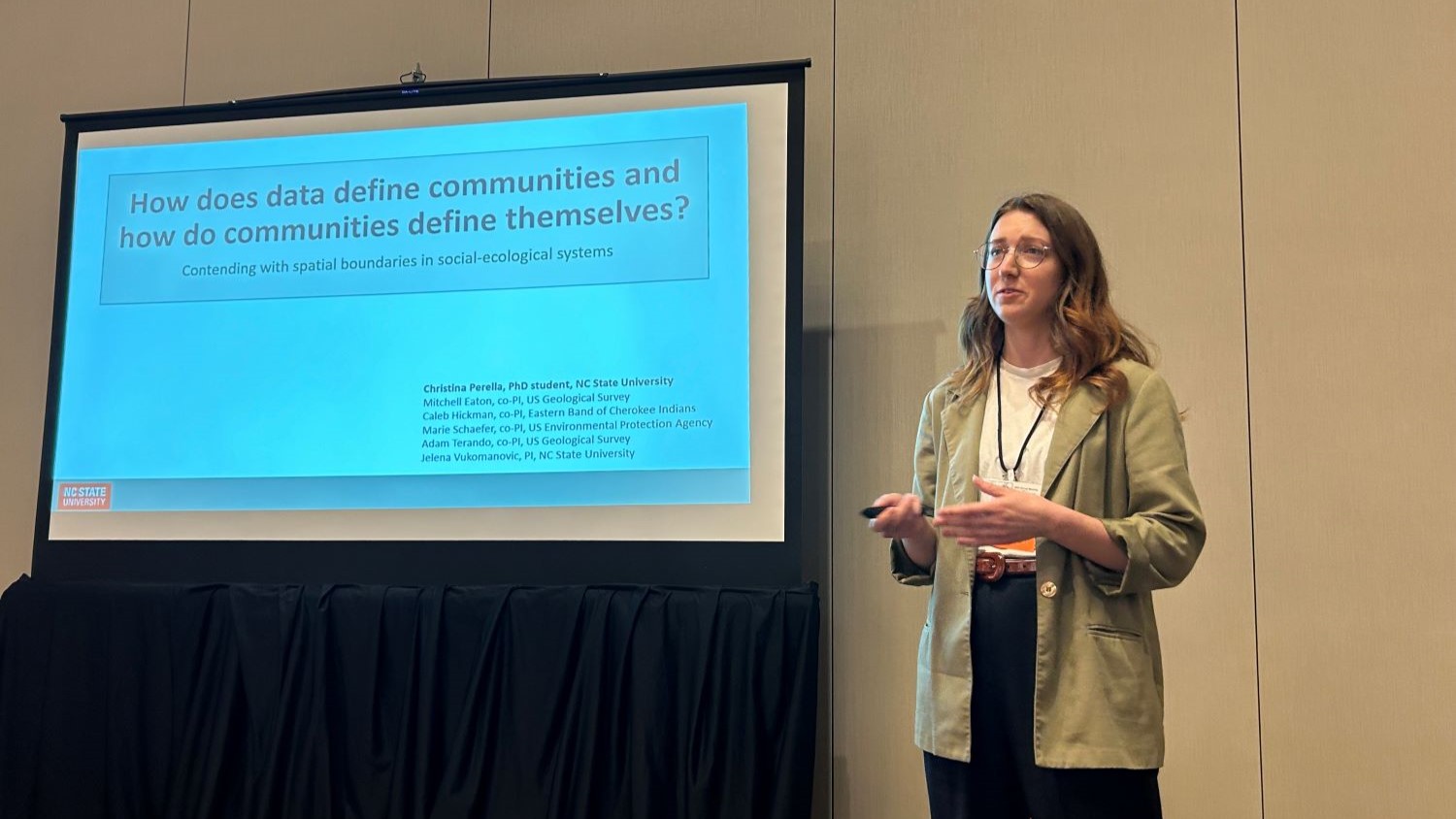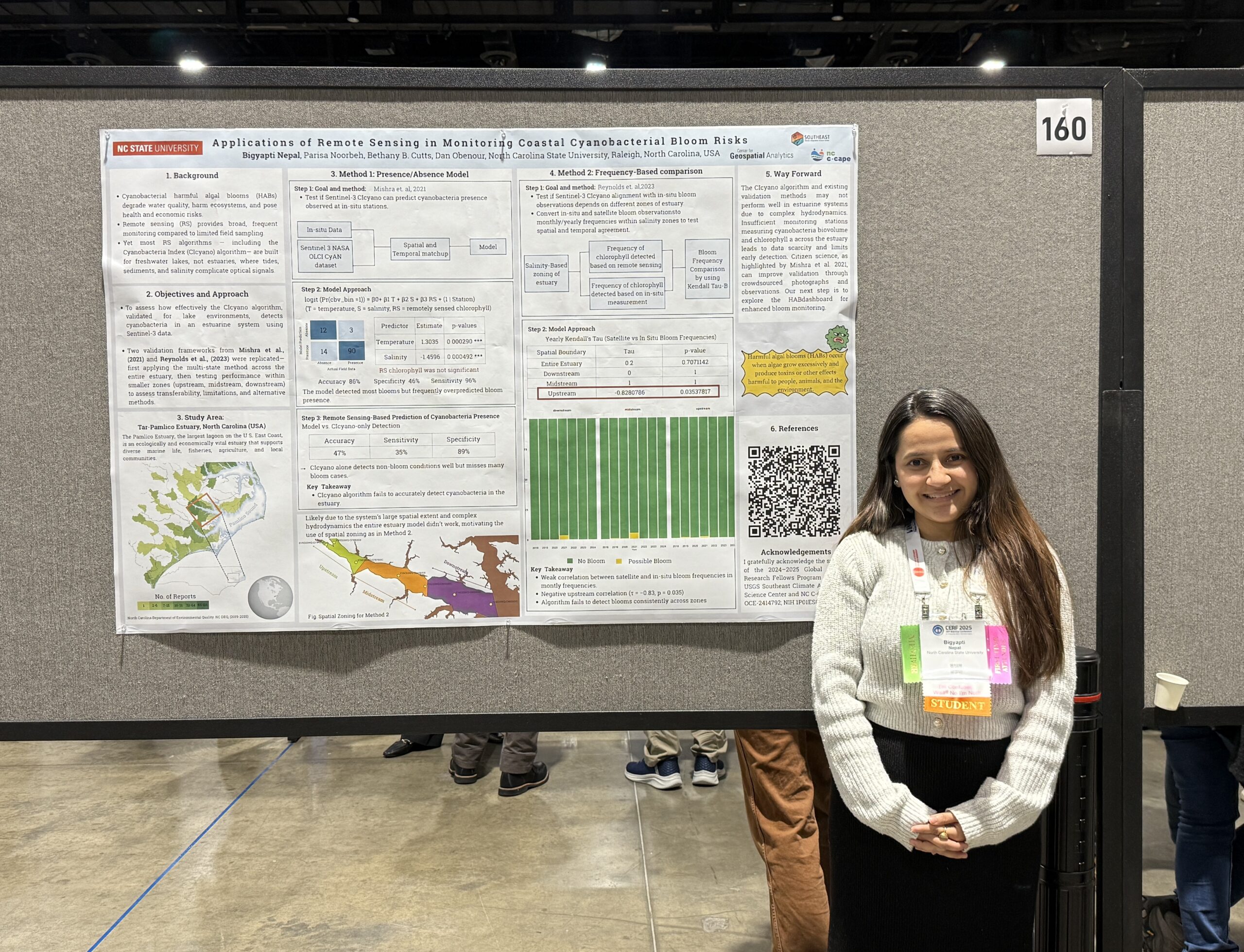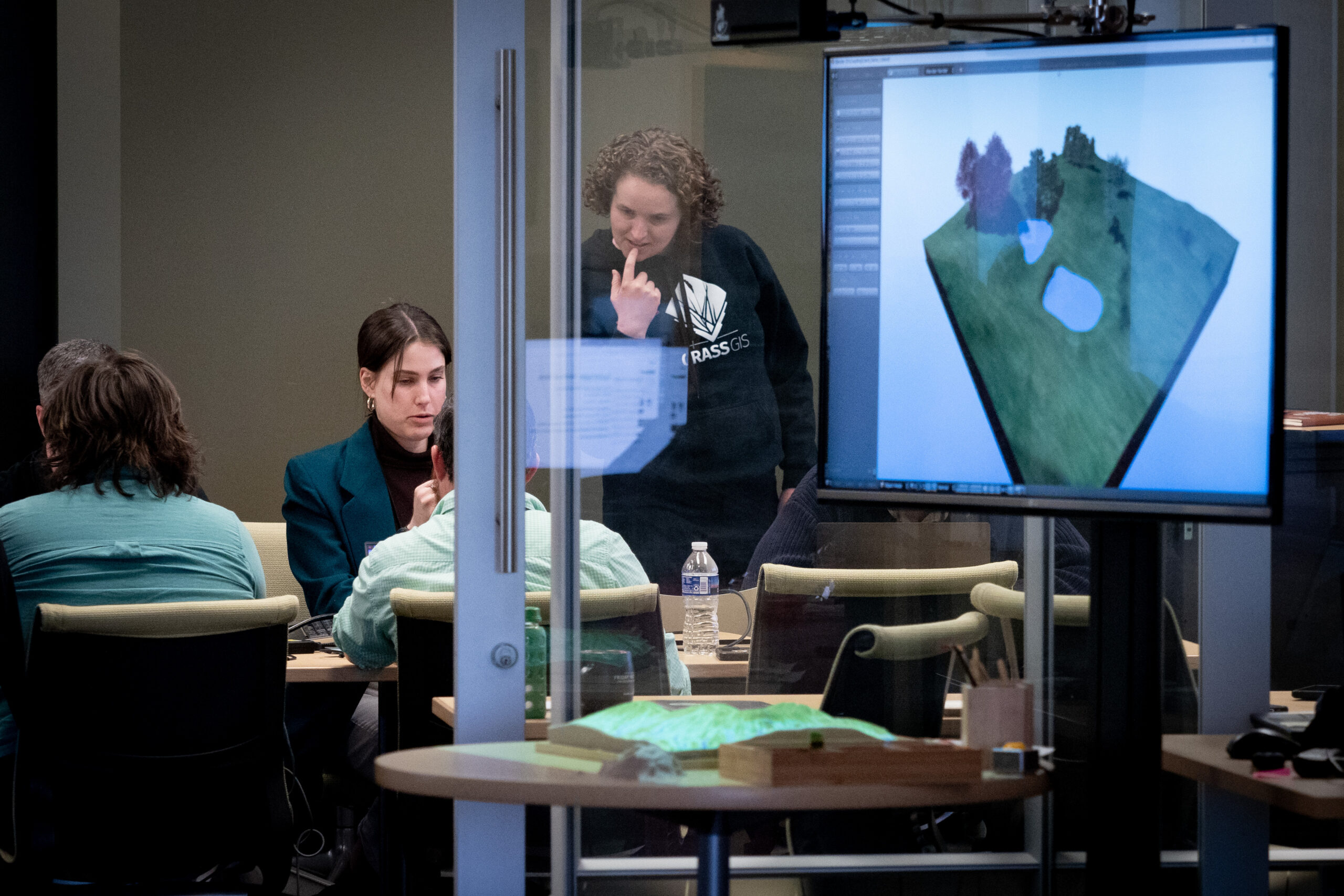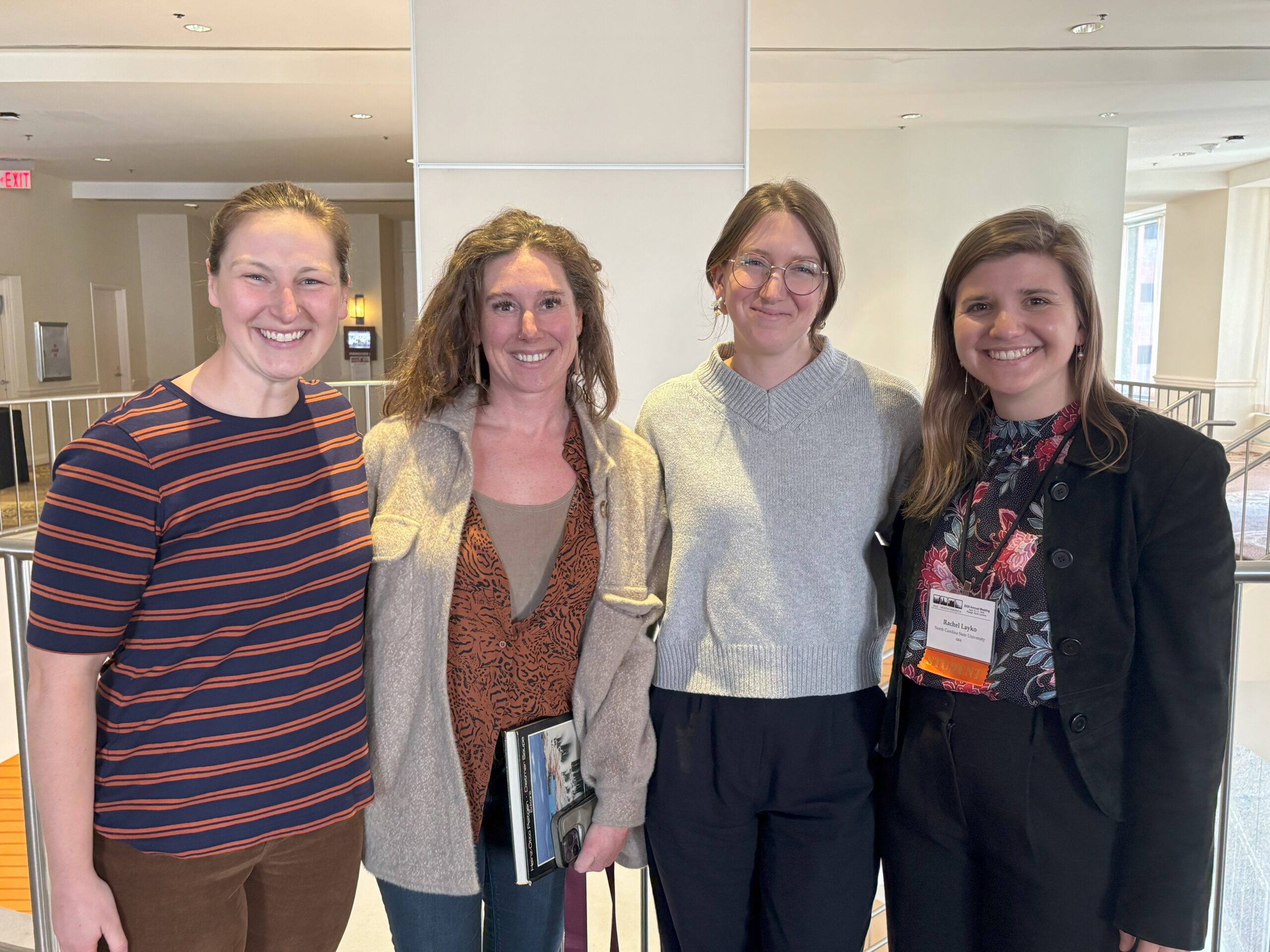Exploring Principles of Open Data and Data Sovereignty in Landscape Ecology

Editor’s note: Each semester, students in the Geospatial Analytics Ph.D. program can apply for a Geospatial Analytics Travel Award that supports research travel or presentations at conferences. The following is a guest post by travel award winner Christina Perella as part of the Student Travel series.
In April 2024, I had the opportunity to attend the Annual Meeting for the International Association for Landscape Ecology-North America (IALE-NA) for the second time. This was an exciting experience for me, not only because I got to visit Oklahoma City, OK, a place I hadn’t been to before, but also because I was delivering my first oral presentation. This trip was also made special by a travel award I received, the NASA-MSU award, which has been funding student travel to IALE for over two decades. As an award recipient, I was invited to attend a dinner with other current and former recipients, which made me feel more connected to the IALE organization.
My presentation was included as part of a special symposium called “Advancing Inclusive Data Science in Landscape Ecology,” in which speakers discussed the FAIR Principles for scientific data (Findable, Accessible, Interoperable, Reusable) and the CARE Principles for Indigenous data governance (Collective benefit, Authority to control, Responsibility, and Ethics) and how they can be used together to work towards more inclusive, ethical science in the field of landscape ecology.
While certainly nervous to give a presentation, I was eager to have this opportunity to share my literature review looking at how spatial boundaries are selected or delineated in social-ecological systems research, and how the way data defines communities may be at odds with how communities define themselves. I was also excited to contextualize the literature review by introducing the collaborative project that I am working on for my dissertation: a climate adaptation plan co-produced with the Eastern Band of Cherokee Indians (EBCI), a tribal nation located in western North Carolina. This project presents an interesting and important opportunity to consider boundaries, as the boundaries of the pre-colonial homelands of the Cherokee people have shifted dramatically over time. Additionally, the processes like urban growth and forest landscape change that we will be modeling require data, and produce outputs, at different spatial and temporal scales. Therefore, conceptualizing the system with the EBCI community and external stakeholders is an important step in this project. Tying back into the theme of the symposium, another important early step in this project has been to discuss and develop a data sharing agreement between EBCI and NC State University. Because I’ve been learning about principles of data sovereignty in real time as our project develops, it was really beneficial to hear from other researchers in the symposium who regularly think about issues in data ethics.
Outside of the conference, I also got to spend some time exploring Oklahoma City with my peers. In my time there, I was dazzled by blooms at the tulip festival at the Myriad Botanical Gardens, enjoyed delicious meals with friends, explored the urban green spaces of nearby Scissortail Park and the river trail, and got a glimpse into the OKC community while hanging out at various cozy coffee shops. There was even a tornado watch one night, so I felt like I got the full Oklahoma experience!
Throughout the events of the week, I was able to make personal and professional connections with other students, researchers and practitioners that I look forward to building on each year that I return to the conference.
Acknowledgements: Thank you to my co-advisors, Dr. Jelena Vukomanovic and Dr. Adam Terando; my collaborators, Dr. Mitch Eaton, Dr. Caleb Hickman and Dr. Marie Schaefer; and to the Southeast Climate Adaptation Science Center for funding this project. Thank you also to the Center for Geospatial Analytics for providing travel funds as well as Dr. Jack Liu at Michigan State University for the NASA-MSU travel award.
- Categories:


